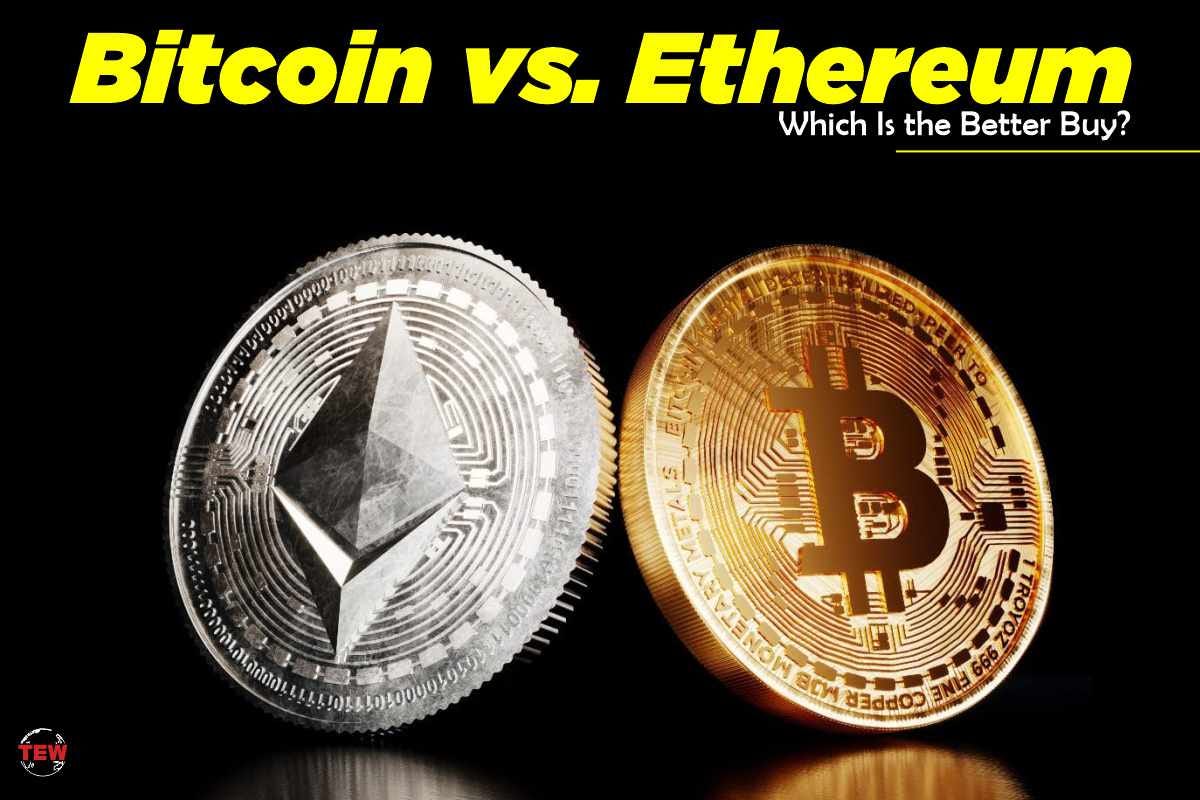is ethereum and bitcoin the same sets the stage for this enthralling narrative, offering readers a glimpse into a story that is rich in detail and brimming with originality from the outset.
The world of cryptocurrencies can be quite intricate, with Bitcoin and Ethereum standing out as the most prominent players. While both have gained immense popularity and market capitalization, their core purposes and technologies diverge significantly. Bitcoin, often referred to as digital gold, serves primarily as a store of value, whereas Ethereum functions as a robust platform for decentralized applications, showcasing the unique functionalities that differentiate these two giants in the crypto space.
Overview of Bitcoin and Ethereum

Bitcoin and Ethereum are the two most significant cryptocurrencies in the market today. While both operate on blockchain technology, their fundamental purposes and functionalities differ. Bitcoin, created in 2009 by an anonymous entity known as Satoshi Nakamoto, was designed as a decentralized digital currency, often referred to as “digital gold.” On the other hand, Ethereum, launched in 2015 by Vitalik Buterin and others, serves as a platform for decentralized applications (dApps) and smart contracts.Bitcoin emerged during the financial crisis, aiming to provide a peer-to-peer alternative to traditional banking systems.
Ethereum’s inception was motivated by the desire to expand blockchain technology beyond simple transactions, enabling developers to create a myriad of applications. In terms of market capitalization, Bitcoin consistently leads the cryptocurrency market, typically holding a significant share, while Ethereum ranks second, showcasing its popularity and widespread adoption.
Technological Differences
The technological foundations of Bitcoin and Ethereum highlight significant differences. Bitcoin operates on a relatively simple blockchain architecture focused on secure and efficient transactions. Conversely, Ethereum’s blockchain is more versatile, enabling complex smart contracts that facilitate automated agreements without intermediaries.Bitcoin utilizes a Proof of Work (PoW) consensus mechanism, requiring significant computational power to verify transactions and secure the network. Ethereum, however, is transitioning to a Proof of Stake (PoS) mechanism, which is designed to be more energy-efficient and allows validators to create new blocks based on the amount of cryptocurrency they hold and are willing to “stake.”
| Feature | Bitcoin | Ethereum |
|---|---|---|
| Launch Year | 2009 | 2015 |
| Consensus Mechanism | Proof of Work | Proof of Stake (Transitioning from Proof of Work) |
| Smart Contracts | No | Yes |
| Primary Use Case | Digital Currency | dApps and Smart Contracts |
Use Cases and Applications

Bitcoin’s primary use case revolves around serving as a store of value and a medium of exchange, often likened to digital gold. Its decentralized nature makes it a popular choice for individuals seeking an alternative to traditional currencies. Ethereum, in contrast, has a broader scope, functioning as a development platform for decentralized applications (dApps) that can operate autonomously through smart contracts.Several industries heavily utilize these cryptocurrencies.
Bitcoin is often embraced by the finance sector, while Ethereum finds extensive applications in technology, gaming, and supply chain management. Notable projects built on the Ethereum network include:
- Uniswap – A decentralized exchange for trading cryptocurrencies.
- Chainlink – A decentralized oracle network that provides real-world data to smart contracts.
- CryptoKitties – A blockchain-based game that allows users to collect and breed virtual cats.
- MakerDAO – A decentralized lending platform that enables users to borrow against their crypto assets.
Community and Development
Both Bitcoin and Ethereum have passionate communities supporting their development and growth. The Bitcoin community is driven by a desire for a decentralized financial system, with many contributors focused on maintaining its security and stability. Ethereum’s community is known for its involvement in innovation, fostering numerous developer initiatives to enhance the platform’s capabilities.Governance structures differ, with Bitcoin adopting a more informal approach where changes are proposed and discussed among community members.
Ethereum has a more structured governance model, allowing stakeholders to vote on significant protocol changes. Recent updates such as Bitcoin’s Taproot and Ethereum’s transition to Ethereum 2.0 exemplify ongoing improvements aimed at enhancing functionality and security.
Investment and Market Trends
.png)
Investing in Bitcoin versus Ethereum presents different opportunities and risks. Bitcoin is often viewed as a safer investment due to its established reputation and market dominance. In contrast, Ethereum is seen as having higher growth potential due to its versatility and expanding usage in various sectors.Both cryptocurrencies exhibit volatility, with Bitcoin typically maintaining a more stable price compared to Ethereum.
Historical price trends indicate that while Bitcoin’s price has steadily increased over time, Ethereum has shown more dramatic highs and lows, reflecting its developmental phases and market adoption.
| Metrics | Bitcoin | Ethereum |
|---|---|---|
| Current Market Cap (approx.) | $500 Billion | $200 Billion |
| All-Time High Price | $68,789 | $4,878 |
| Price Volatility (Annualized) | 60% | 80% |
Regulatory Perspectives
The regulatory landscape for Bitcoin and Ethereum varies significantly across countries. In some regions, Bitcoin is recognized as a legitimate currency, while others impose strict regulations or outright bans. Ethereum, as a platform rather than just a cryptocurrency, faces different scrutiny, particularly regarding its smart contracts and dApps.Regulatory changes can significantly impact the future of both cryptocurrencies, influencing market dynamics, adoption rates, and investor confidence.
Potential risks include increased compliance costs and challenges in navigating evolving legal frameworks that could hinder innovation.
Future Outlook
Predictions for Bitcoin’s and Ethereum’s futures remain optimistic, with experts suggesting that both will continue to play critical roles in the crypto ecosystem. Bitcoin may solidify its status as a digital store of value, while Ethereum is expected to thrive as the leading platform for decentralized applications.Technological advancements, such as improvements in scalability and interoperability, are likely to shape the future of both cryptocurrencies.
Challenges on the horizon include regulatory pressures, security concerns, and competition from emerging blockchain platforms.
- Regulatory Changes: Adapting to new laws and regulations globally.
- Scalability Issues: Managing transaction speeds and costs as demand grows.
- Security Challenges: Protecting against increasing cyber threats.
- Market Competition: Competing with new cryptocurrencies and technologies.
Summary
In conclusion, while Bitcoin and Ethereum share the same overarching domain of blockchain technology, they serve distinct roles and functionalities that cater to different user needs and market demands. Understanding these differences not only enhances our knowledge of cryptocurrencies but also equips us with the insights necessary to navigate the evolving digital economy. As both assets continue to develop, their unique characteristics will likely shape the future of the cryptocurrency landscape.
Answers to Common Questions
What is the main difference between Bitcoin and Ethereum?
The primary difference is that Bitcoin is designed as a digital currency for transactions, while Ethereum offers a platform for building decentralized applications.
Can I use Ether like Bitcoin?
While you can use Ether as a currency, its main utility lies in powering applications on the Ethereum network, making it distinct from Bitcoin.
Which is better for investment, Bitcoin or Ethereum?
Investment preferences vary; Bitcoin is often seen as a safer bet due to its established position, while Ethereum is favored for its growth potential in decentralized applications.
What are the transaction speeds for Bitcoin and Ethereum?
Bitcoin transactions typically take about 10 minutes, while Ethereum can process transactions in around 15 seconds, making it faster in many cases.
Are Bitcoin and Ethereum regulated the same way?
No, regulations vary by country, with some viewing Bitcoin as a currency and Ethereum as a platform, leading to different regulatory approaches.

